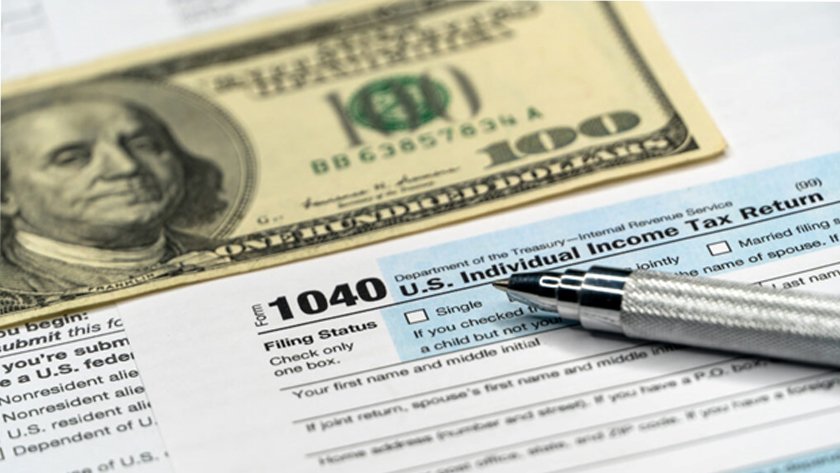Tax season frequently emerges as one of the most anxiety-inducing periods in the lives of taxpayers. Meeting the stringent filing deadlines, comprehending the intricate landscape of tax credits and deductions, and retaining a comprehensive record of your business expenditures can swiftly become an overwhelming endeavor. Regrettably, the stress associated with tax season occasionally results in inaccuracies within your tax return, potentially leading to substantial tax liabilities, onerous fines, and even the unwelcome prospect of an audit.
The encouraging news is that, for the most part, these errors can be avoided. Barron Income Tax is prepared to guide you through the ten most prevalent tax return blunders to be cautious of during your filing process. We will elucidate the origins of these errors, offer remedies to rectify them, and provide guidance for individuals who have already submitted their returns containing mistakes. Continue reading to acquire valuable insights, ensuring you steer clear of repeating these errors in your 2023 tax return!
Table of Contents
Tax season can be stressful for anyone, and making sure your tax return is accurate to avoid any complications with the IRS can be challenging. It’s important to be aware of the common errors many people make on their returns to help reduce stress and increase accuracy. Here are 10 common tax return mistakes you should watch out for.
Obscene Math Errors
A frequent mistake on tax returns is overlooking mathematical errors. It’s easy to misplace a digit or include an incorrect operational sign, so double-check all calculations before submitting your return. Additionally, one should be careful not to accidentally divide instead of multiply in any calculations, as this can lead to obvious mistakes in the final tally.
Forgetting to Sign
Another common error when filing taxes is forgetting to sign and date the return. This is an incredibly simple mistake but can have major implications if not corrected before submission. Also, some personal information, such as Social Security numbers or addresses, may need to be included when signing. Double-check that all required information has been included with the signature before submitting your taxes.
Incorrectly Reporting Income
Taxpayers need to keep accurate records of all income sources and report them accurately on their tax returns. Many forget to include income from investments or 1099 forms when filling out their returns. Also, check the Amended tax return Form. While this may increase take-home pay in the short term, it does nothing but creates complications down the line if not corrected before submission.
Making Assumptions
Not every deduction or credit available will apply to everyone, and assumptions regarding what deductions you are able or ineligible for could lead to costly consequences in the future. No matter how minor a deduction seems, it’s always important to double-check with an expert whether you are eligible for any given deduction before claiming it on your tax return.
Unintentionally Underpaying
When calculating your tax liability, it’s important to be thorough and ensure you don’t overlook additional taxes that may need to be paid. Whether it’s taking into account penalties for late filing or interest for paying late, double-checking all potential additional taxes is essential when submitting your taxes and ensuring you aren’t underpaying your bill by accident.
Delays in Filing
Filing on time is key in avoiding additional penalties or fees that could come with a late filing of taxes. Taxpayers should keep track of the calendar year’s filing deadlines and submit their returns at least a few weeks before those dates just in case there are any issues with submission or unexpected delays in processing occur. Suppose taxpayers think they won’t have time to submit their returns by the proper deadline. In that case, they should file an extension as soon as possible after the deadline passes, as penalties won’t begin accruing until after that date.
Unfamiliarity with the Tax Code
The US tax code is full of credits and deductions, so taxpayers need to understand what those entail before attempting to claim something that could lead to additional taxes due or denials from auditing later on if something isn’t reported correctly. Some credits may require specific information or tests such as income caps or birth months—so being familiar with these requirements can save taxpayers significant amounts of money by preventing accidental overpayment occurrences or disallowed credits when filing returns.
Incorrect Filing Status
Taxpayers need to use their correct filing status, amended tax return status, when submitting their return as some credits and deductions only apply depending on a taxpayer’s particular circumstances—such as whether they are married filing jointly or single filing separately or head of household—so understanding the distinction between these statuses can mean major savings during tax season if done properly. Incorrectly claiming a different status than they qualify for can lead to serious issues such as audits or additional payments later if not corrected early on during the filing processes.
Forgetting Estimated Tax Payments
Some taxpayers may have additional payments due throughout the year beyond traditional quarterly filings, including estimated tax payments throughout certain months of the year, so they do not owe at the end of their fiscal year cycle. Taxpayers need to calculate these payments correctly, ensuring enough money is sent and including all necessary information such as Social Security number, etc., so that payments are applied correctly and credited towards total liabilities at year-end payments don’t unintentionally exceed expectations at year-end payment time. Additionally, some may not even be aware that estimated payments are necessary – so researching beforehand is also vital for taxpayers unfamiliar with these processes.
Not Taking All Possible Deductions
There are numerous deductions available for taxpayers when calculating their taxes which many people don’t even exist, so be sure to research them thoroughly and see if there are any that might apply specifically if any deductions at retirement accounts have been overlooked or other credits/deductions which you haven’t taken advantage of during filing processes. Researching ahead of time can save significant amounts of money by taking advantage of these deductions—so make sure you’re familiar with them before submitting your tax returns!
Thanks to these helpful tips, tax season doesn’t have to be intimidating, which helps identify areas where mistakes might occur while preparing your return. Keep track of all income received throughout the year and double-check your filing status before submitting your taxes—and above all else—make sure you take advantage of each credit/deduction available to maximize how much money you get back from Uncle Sam!

Conclusion:
Barron Income Tax believes Tax season can be a stressful time of year, and it’s easy to make mistakes that could cost you. By understanding and avoiding these 10 common tax return errors, you can save yourself from a costly tax bill, significant fines, and the chance of an audit. Filing taxes can be a breeze with the right knowledge and a few preventative measures. So, make sure you keep these tax time blunders in mind this season and file knowing that you are doing your best to stay compliant and keep your tax obligations in check!
At Barron Income tax services, we specialize in tailoring the right service for our clients. We understand every customer has Read more
When you first start filing your tax returns, one of the many questions that come into mind is; should I Read more
With rules changing on sudden notice and many businesses having to enforce limits & restrictions on their premises. It is Read more
If you are the one who engages in business outside his country or deals with overseas legal documents, you need a Read more
After months of negotiations the $1,400 stimulus check has been approved and ready to go! In this article, we will Read more
Are you tired of struggling with bookkeeping mistakes that can jeopardize your business? Look no further! Barron Income Tax has Read more
Are you a small business proprietor dreading the impending tax season? The prospect of delving into heaps of paperwork and Read more
Keeping track of your small business’s finances can sometimes feel like navigating a complex web, especially if accounts aren’t your Read more








